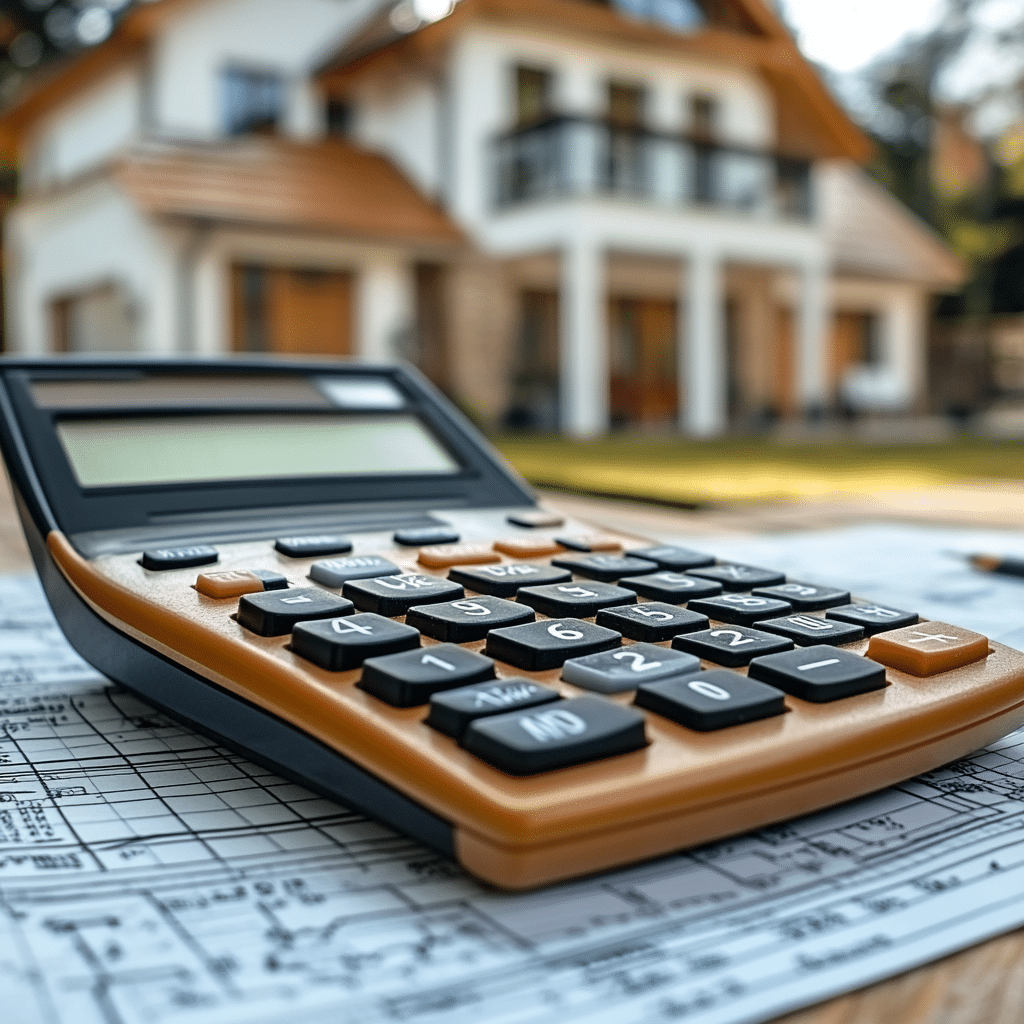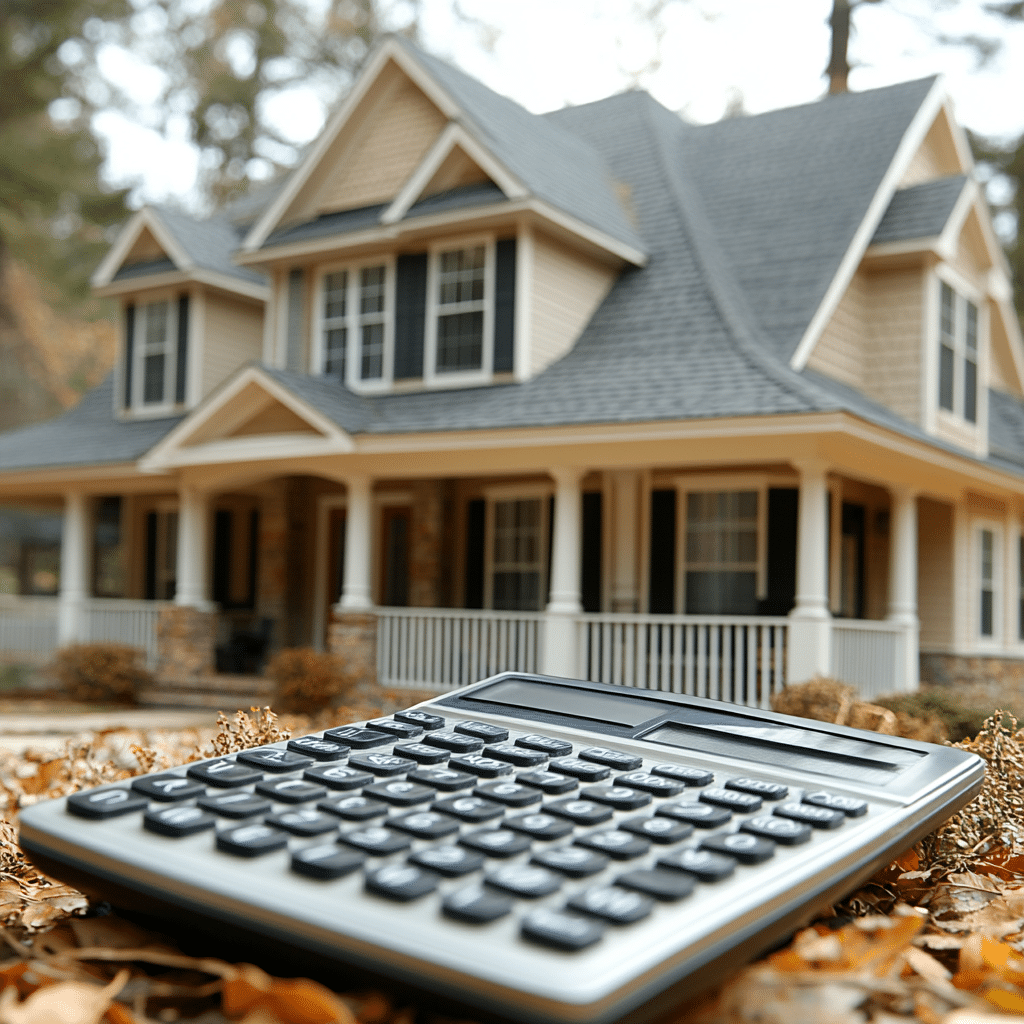Calculating your home’s value might seem a tough nut to crack, but it doesn’t have to be. Understanding how to calculate home value is critical for homeowners looking to make informed decisions in today’s fast-paced real estate market. The value of a home can vary significantly based on several factors like location, size, age, and condition. Grasping these elements allows homeowners to better maneuver through buying or selling property, ensuring they secure the best deals without leaving money on the table.
In this article, we’ll delve into the nitty-gritty of home valuation, offering actionable tips to help you effectively determine home value. Whether you’re considering selling, refinancing, or just curious about your investment, we’ve got the inside scoop. Remember, knowledge is power in real estate!

Calculate Home: Understanding the Basics of Home Valuation
The process of calculating a home’s worth isn’t a one-size-fits-all framework. It consists of various integral components that shape its final appraisal. Location is often king; homes in more desirable neighborhoods tend to have higher valuations. Similarly, the size of your home—its square footage—plays a critical role in determining its market price. Age and condition are also significant; newer and well-kept homes often fetch better prices than older, less maintained properties.
Take, for instance, a two-bedroom home in a top-notch school district in Los Angeles that sells for $600,000. In contrast, a similar home in a nearby area that lacks those school ratings might sell for only $400,000. Grasping these differences not only informs potential buyers but also gives sellers a leg up when pricing their property.
Beyond these core aspects, it’s essential to remain mindful of other influential factors, such as economic indicators and local market dynamics. Is the area’s job market booming? Are new schools or highways being built? Whether you’re strategizing for buying or selling, staying abreast of these changes arms you with the knowledge to calculate home value effectively.

Top 7 Simple Steps to Calculate Home Value Accurately
Begin your home valuation adventure by looking into recently sold properties in your neighborhood that share similar features. Websites like Zillow and Redfin can offer a treasure trove of listing prices. For instance, if a comparable home in your neighborhood sold for $350,000, that’s a pretty solid benchmark for your house.
Take a step back and assess your home’s condition. Be it the roof’s wear and tear or the plumbing’s functionality, every detail counts. If you splurged on high-end kitchen appliances, like Bosch, that could pump up your home’s value considerably. Consider hiring a professional home inspector—think of them as your home’s doctor—to unveil any needed repairs.
Stay alert about whether you’re in a buyer’s market or a seller’s market; it can significantly impact valuation. In a hot market like Austin, Texas, properties could be flying off the shelves at higher prices, while slower areas might not see the same appreciation. Tools from the National Association of Realtors can help you keep an eye on market trends.
Leverage the power of technology by using reliable online valuation tools. For example, the Chase Home Value Estimator will give you an initial idea of your home’s worth simply by entering your address and some details about your home.
A seasoned real estate agent can offer invaluable guidance about your home’s worth based on experience and knowledge of the local market. A competent agent will help give you a proper evaluation tailored to your property’s specific factors.
Those standout features in your home—like a beautifully landscaped yard or energy-efficient lighting—could mean higher demand. In environmentally-conscious markets, homes with solar panels may sell for up to 20% more than similar homes without them. Don’t underestimate the value of unique perks when calculating home.
Just like your closet, your understanding of your home’s value needs an occasional refresh. Make it a habit to assess your home’s value every couple of years, keeping an eye out for market adjustments. Services from companies like HomeAdvisor can help keep track of these shifts.
Determine Home Value: The Role of Appraisals
Appraisals are key actors in the dance of home valuation. When you need a professional estimate of your home’s worth, an appraiser steps in to provide an unbiased assessment—especially crucial during sales or mortgage applications. They delve into critical data, examining both your home’s condition and comparable local sales, ensuring you’re well-informed about your property.
In fact, an appraisal isn’t just a formality; it acts as a safety net in cases where buyers and sellers might disagree on a home’s price. Think of the Appraisal Institute as your go-to resource for finding credible appraisers. Proper appraisals protect both parties and lay the groundwork for informed decision-making.
Understanding and relying on professional appraisals can lead to smarter financial choices and help guard against losses. Remember, a clear understanding of appraised value coupled with market insights can shape your approach to real estate transactions.
The Importance of Knowing Your Home Value
Calculating your home’s worth transcends mere financial transactions. It influences several facets of homeownership, from property taxes to insurance premiums. Knowing your home’s value can lead to an informed decision regarding refinancing mortgages, potentially lowering monthly payments or offering cash-out opportunities. If you’re contemplating a streamlined refinancing process, understanding your home’s current value can unlock better rates and terms.
Moreover, good financial health hinges on knowing your assets. A home often represents a significant portion of a household’s net worth. Understanding its value not only helps with short-term goals but also sets the stage for long-term financial planning, including retirement strategies.
Being knowledgeable about your home’s worth can lead to empowering choices that help you retire comfortably. Whether it’s accessing funds through home equity or deciding to sell, grasping your home’s valuation can ensure you’re strategically aligned with your financial objectives.
Navigating the Buying and Selling Process: Expert Tips
Stepping into the buying or selling circuit can be intimidating, but holding onto a few expert tips can help ease the process:
With these expert insights, you’re on the right path to assessing your home’s value as effortlessly as pie. Calculating your home’s worth isn’t just about numbers; it empowers you, unlocking the potential to make sound financial decisions. Prepare yourself for the real estate landscape, and you’ll navigate it like a seasoned pro.
By following these essential steps and tips, not only will you gain clarity on how to calculate home value accurately, but you’ll also become a savvy homeowner ready to tackle the real estate market. Remember, each milestone in understanding your home’s value can lead to better decisions and greater financial security. So roll up your sleeves and dive into the rewarding practice of assessing and optimizing your investment!
Calculate Home: Fun Trivia and Interesting Facts
The Joy of Numbers
Did you know that according to recent statistics, first-time homebuyers often underestimate their budget by at least 15%? It’s a staggering figure that screams the importance of calculating home costs accurately. This not only includes the down payment but also property taxes and insurance. Speaking of home financing, ever heard of hard money? Essentially, it’s a type of loan that’s backed by real estate, appealing to those who need quick cash without the lengthy process of traditional loans. Understanding this can really help you when you crunch the numbers on your mortgage options.
Tips and Tricks of Homebuying
If you’re thinking of buying, you might want to check out local professionals. Searching for real estate agents in my area can provide invaluable insight and streamline that whole buying process. Fun fact: buying a home can feel a lot like leveling up in your favorite game—just like Ayaka from Genshin Impact, you need to collect the right resources and strategize before completing your quest. And don’t overlook those sneaky mortgage points; they might seem like a small detail but can significantly reduce your interest rates over the life of the loan. Isn’t that a neat way to save some cash in the long run?
Cash-In on Your Options
For veterans, understanding the cash out VA loan option can be a game changer. This program allows you to leverage the equity of your home, turning it into cash—kind of like turning a pumpkin into a carriage in fairy tales! And speaking of tales, there’s an interesting parallel between financing a home and the captivating narratives of anime princess stories. Both require careful planning and a good grasp of the adventure ahead, whether it’s navigating loan terms or finding the perfect property. Don’t get lost in the process—keep your eyes on the prize and remember to calculate home costs wisely!




